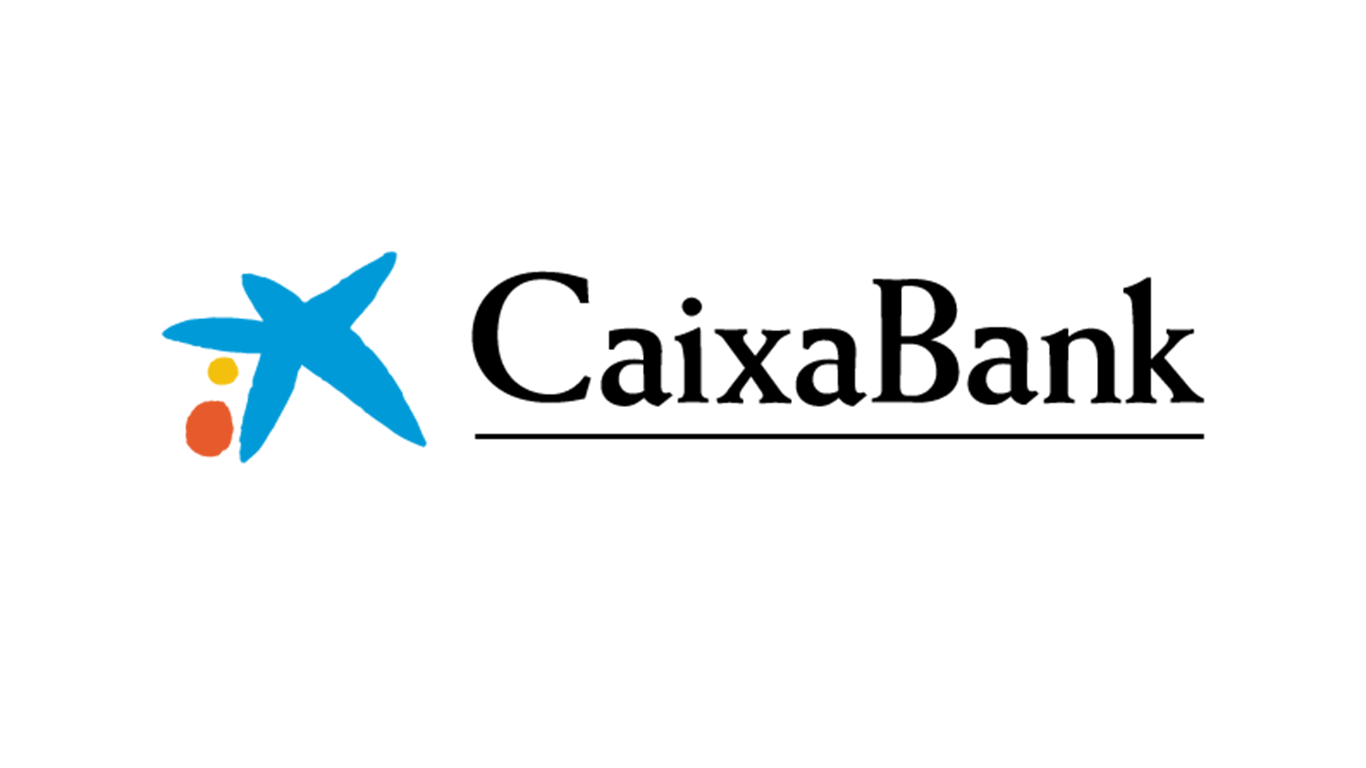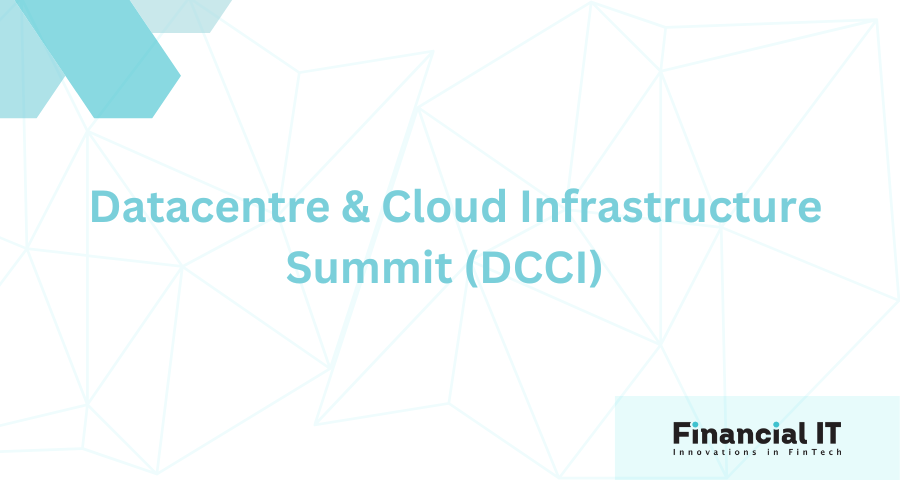Published
- 07:00 am

Moneyhub, the award winning top 100 global fintech, has been granted permission to provide Credit Information Services by the Financial Conduct Authority (FCA).
The ability to provide Credit Information Services (CIS) is subject to FCA regulation. As a Credit Information Services Provider (CISP) Moneyhub can now obtain and display a user's credit file information, including credit score, across the Moneyhub platform. This functionality will be rolled out across Moneyhub’s award-winning consumer app and to clients utilising its Open Finance technology.
Moneyhub submitted its application following a comprehensive survey of its users in which over 80% stated they would be interested in understanding their credit score profile as part of their wider financial position, furthering its commitment to driving financial wellness through more informed decision making.
In the FCA’s Credit Information Market Study Interim Report, it found that, despite a high level of awareness of credit information, understanding of the information and its impact was low, which could have detrimental effects on the consumer, surmising: “Poor understanding of credit information, and difficulties in accessing credit files, can lead to consumers acting in ways which unknowingly harm their creditworthiness, potentially affecting their access to credit and its cost.”
Moneyhub’s technology offers a simple solution to connect current accounts, savings, loans, investments, property, automotive and pensions, providing a holistic view of an individual’s finances and financial health. It enables actionable insights through smart nudges and machine learning.
Over 150m people have access to Moneyhub’s technology through their partners such as Aon, Standard Life, Mercer and SEI Investments, or directly through its personal finance app which can be accessed through the App Store, or Google Play.
Dan Scholey, CCO at Moneyhub comments: “We have always been advocates of making it easy for consumers to see their entire financial world in one place, and a fully holistic view must include credit information. Around 69% of UK adults don’t know their current credit score, and this knowledge gap could be leading to uninformed, and potentially harmful financial decisions.
“Knowledge is key in empowering people to take control of and understand their finances. Becoming a CISP is an important step forward in our mission to work with our clients to enhance the lifetime financial wellness of their customers.”
Related News
- 03:00 am

CaixaBank has put together a multi-disciplinary task force of more than 100 people to exclusively analyse and deploy generative Artificial Intelligence in specific areas of internal and customer-related processes. The objective is to analyse the potential of this new technology and develop use cases in which AI contributes to driving digital innovation and improving processes in all of the bank's lines of activity, to improve its customers' satisfaction and its employees' user experience. It also intends to streamline new software developments and improve processes for analysing management information.
CaixaBank's vision in analysing generative AI is that it has a high potential to support management and routine tasks in such a way that, with the appropriate applications, it can provide employees with more time to focus on higher added-value tasks and thus offer customers' a better service.
The team exclusively engaged in this initiative has offices in Barcelona and Madrid. This multi-disciplinary team has been specifically selected for this programme and includes members from various departments and specialities in CaixaBank and CaixaBank Tech —CaixaBank Group's technological subsidiary—, to promote the multi-dimensionality and global vision of the developments. The bank BPI, which is part of the Group, is participating actively in the corporate programme with employees joining the project.
Microsoft, with which CaixaBank has a strategic collaboration agreement for co-innovation in Artificial Intelligence, and Accenture are distinguished partners in the GenIAl project. The cooperation with Microsoft provides CaixaBank with access to GPT models and others in a secure test environment and with advancements that are not yet available on the market.
Multi-disciplinary working groups to analyse use cases
A series of working groups have been created within the framework of GenIAl to develop real use cases in which generative AI would bring improvements, with a focus on employee experience. CaixaBank is confident about the positive results of the use cases and expects to deploy it in the entire Group throughout 2024.
Among the initiatives under way stand out those related to streamlining customer service through the digital channels and those linked to risk analysis, with the aim of providing support to the company's professionals. Others include generating code in developments, preparing tests and drafting documentation for new technological functionalities.
A pioneer in the use of AI applied to financial services
With experience since 2014, CaixaBank has stood out for being one of the pioneering banks in analysing the use of Artificial Intelligence applied to financial services. Artificial Intelligence has already been applied to multiple services and projects of CaixaBank, from Foreign Trade services to its cognitive assistant, which provides support to both the bank's customers and employees. For example, the call centre incorporates AI-based technology to help assist customers, and it is able to identify customers older than 65 so the call is always taken by a trainedadviser.
In terms of internal management, AI is employed to increase efficiency, even in the in-person branch channel. For example, as of 2019, CaixaBank's advisers are using an Artificial Intelligence application to manage returned direct debit payments. The system automatically analyses the returns, understands individual issues and decides whether to permit the payment, to return the bill to the issuer, or to postpone the payment for a few days before analysing it again to see if the account can be debited. The system can also choose to send the bill to an adviser for a more detailed analysis. CaixaBank obtained a model with 99% accuracy, meaning that the system virtually always thinks and acts like a human.
Related News
- 08:00 am

The festive period is meant to be one of cheer and happiness, but for two in five Brits it is one full of dread due to the extra financial pressure on them. During this time of the year, there is much expectation placed on people to buy gifts for family, friends and partners amongst other extra expenses.
The feeling of dread is one that is particularly felt by the younger demographic, with over half (53%) of 18-34-year-olds surveyed saying they dread the extra financial burden.
This sense of dread is felt across the UK, with those in the East of England (51%), Scotland (49%) and Northern Ireland (45%) being the most worried.
Most worried areas of the UK:
1. East of England (51%)
2. Scotland (49%)
3. Northern Ireland (45%)
4. London (45%)
5. North West England (44%)
In a year that has seen Brits dealing with increased housing costs such as rising rents and mortgages, inflation pushing up prices at the shops and many other increased costs, it has been a tough 12 months for finances.
Around two-fifths (41%) say they regularly finish the month with no money left in the accounts or are in their overdraft.
The research from Moneyhub also showed the toll this has had on Brits' financial goals, with 45% of those asked having to dip into their savings over the past 12 months to pay for everyday expenses.
When it comes to building the used savings back up, it will likely be a long road, as 28%** of Brits struggle to save, describing their ability to save as ‘Limited’, ‘Decreased’ or ‘Poor’. While only 15% say they can save a significant proportion of their income a month.
There are also worries the pressure of the festive period could lead to more debt. Almost a third of Brits say they expect to be in debt in January due to gift giving in December.
Kim Jenkins, Managing Director of Moneyhub API said:
“A third of Brits expect to be in debt in January - a shocking and worrying statistic. Banks and financial institutions can focus on technology to provide smart, actionable insights to their customers in order to help minimise debt, support their saving and build financial resilience. This is important not just for January, but throughout the year. Using open banking and smart nudges, banks can alert customers to personal opportunities for saving, equipping them with the tools and behaviours to help cover the costs of the festive period throughout the year.”
Related News
- 05:00 am

Going beyond expectations, the debut edition of Datacentre & Cloud Infrastructure Summit (DCCI) on 29 – 30 November in the Kingdom sparked numerous vital conversations amongst industry leaders.
While setting the right tone for global collaborations, His Excellency Dr. Suhel Ajaz Khan, Ambassador of India to The Kingdom of Saudi Arabia inaugurated the event while giving an inspirational speech. His message was well received and got a huge round of applause from the hundreds of attendees at the platform.
For a massive congregation including but not limited to the VPs, GMs & Heads of IT, Infrastructure, Datacentre, Cloud and Security, the venue, JW Marriott Hotel considered to be Riyadh’s most opulent, rightly befitted the occasion.
In an exclusive interview, the Founder & Chairman of the Board at Saudi Cloud Computing Association (SCCA), Fahad Alhamed commented on his experience with the exhibitors and the event in general, “I went through the amazing exhibitors and had discussions with them. It was very interesting. Thank you again for inviting me to the event. It was interesting to be at the event as it was really informative. Also, it was an honour meeting His Excellency, Ambassador of India. We had a discussion on the possible collaboration between SCCA and the Embassy.”
Numerous renowned organizations contributed to the platform’s program development and got the best participation for the same, DCCI had massive support from Uptime Institute, ISACA Riyadh Chapter, MENA Cloud Alliance, EiTESAL and Bahrain Technology Companies Society.
What kept the crowd on their toes was the sheer display of cutting-edge datacentre & cloud solutions from organizations like EDGNEX, Arabian Development and Marketing Co., Ltd., (ADMC), Supermicro, Panduit, Huawei and many others who put their best show at the exhibition arena.
Pertaining to the context of networking at the platform, Stuart Manby, Vice-president - Sales, Marketing & Customer Success Data Centres, Edgnex expressed, “It’s been a very good experience at DCCI! We’ve met with new prospects looking to take datacentre space in Saudi Arabia and with customers that are coming to our datacentres this year and next.”
While participation was quite diverse and attendees hailed from numerous sectors, DCCI was also successful in grabbing the attention of multiple ministries and the Kingdom’s leading organisations. The top officials from Ministry of Communication and Information Technology, Ministry Of Health, Ministry Of Oil And Environment Bahrain, Saudi Cloud Computing Association, Saudi National Bank, Saudi Pro League, Public Investments Funds - PIF Projects and many others were the key speakers at the conference hall who imparted the latest intel from the industry.
DCCI facilitated unparalleled networking opportunities for organisations to discuss partnerships and potential collaboration opportunities.
The Head of Data Center International Sales and Business Development at Sterling & Wilson, Ranjit Gajare, who was also one of the key speakers at the event expressed his views on the platform, “DCCI is the first of its kind event in Saudi & a great start in the market. We could interact with key stakeholders including colocation providers, product suppliers, solution providers, cloud providers and government authorities. Even the Indian Ambassador came here and opened the session. So, it was a very nice mix.”
Related News
- 02:00 am

FINEXPO is set to host the highly anticipated Singapore Blockchain Festival and Traders Fair 2024 in tandem. This dual event marks a pivotal moment for the global financial ecosystem.
Set against the dynamic backdrop of Singapore, these events are more than mere gatherings; they represent a comprehensive exploration of the complete financial ecosystem, encompassing the worlds of finance and FinTech.
The Singapore Blockchain Festival stands as a beacon for blockchain enthusiasts, spotlighting the latest in blockchain technology, cryptocurrency, and decentralised finance (DeFi). From industry pioneers to those embarking on a journey into the digital realm, the festival's diverse schedule of speakers, exhibitors, and interactive workshops promises to inspire and educate.
Simultaneously, Traders Fair 2024 underscores the significance of finance within this complete ecosystem. It serves as a nexus for pioneers and professionals, pushing the boundaries of innovation. This is a space where partnerships are forged, and discussions vital to the rapidly evolving worlds of blockchain technology and the finance industry come to the forefront.
What Sets Both Apart:
While the Singapore Blockchain Festival delves into cutting-edge blockchain technology and its applications, Traders Fair complements the narrative by exploring the intricate dynamics of the financial world. Together, they create a synergy that not only showcases the latest in blockchain but also examines the intersection of technology and finance.
Traders Fair 2024 opens avenues for attendees to discover direct pathways to earning 4-5 figures in USD every month, even as beginners. The focus is on practical strategies, capital protection without the burden of stressful analytics, and methods to navigate the financial landscape effectively.
In contrast, the Singapore Blockchain Festival presents an intellectually stimulating menu of topics, including discussions on governance and regulation in an increasingly decentralized world. Attendees can delve into the intriguing realm of tokenization with insights into securities, real estate, art, and explore the future landscape of digital assets in 2024.
This tandem event offers a unique opportunity for attendees to engage in cross-disciplinary discussions, fostering an environment where the possibilities of distributed ledger technology are not only showcased but actively explored.
Details of the Singapore Traders Fair and Blockchain Festival 2024 are as follows:
Date: Saturday, 2 March 2024
Time: 9:30 AM – 18:00 PM
Venue: Marina Bay Sands Singapore, Expo and Convention Centre
Interested companies and organizations can look into several sponsorship and exhibitor packages to take part in this historic event. For information on how to participate and promote your business to a worldwide audience, please visit tradersfair.com and blockchainfestival.asia. Media inquiries, speaker opportunities, and partnership requests are warmly welcomed. Kindly reach out to FINEXPO at info@finexpo.org.
Related News
- 03:00 am

ila Bank, Bahrain’s leading digital mobile-only bank powered by Bank ABC, has tied up with Gulf Air to provide customers personalised rewards on their credit card spends. The Bank’s new credit card rewards programme, ‘ila Rewards’, enables customers to choose their reward blueprint according to their preferences and priorities, thereby suiting their unique lifestyle needs.
As part of ila Rewards, customers have the flexibility to choose how they want to be rewarded for their Credit Card purchases, from automated Airmiles program, automated cashback or collect ila Tokens. When enrolling with the Airline Miles Programme, all purchases are automatically converted into miles and credited into the customer’s Falconflyer Programme with Gulf Air. Customers who choose ila Tokens can keep collecting their ila Tokens and can choose to convert them to Gulf Air miles as and when they require. ila Tokens are valid for three years and offer the flexibility of choosing how many tokens are to be redeemed as miles.
Commenting on this partnership with Gulf Air, Mohamed Almaraj, ila Bank CEO, said, “We take great pride in pioneering this unique tailored rewards programme for our valued customers in Bahrain in partnership with the national carrier of the Kingdom of Bahrain, Gulf Air. With such flexibility of reward and redemption options offered under the Airmiles and ila Tokens programmes, ila Bank continues to deliver on its promise to take its customers ‘to’ their dream destinations.”
Gulf Air Chief Executive Officer, Captain Waleed Al Alawi, said: “In line with our digital transformation strategy, we are continuing to adapt our Falconflyer program to meet members’ needs and exceed their expectations. We remain committed to providing a wide range of bespoke offers and redemption options that enhance the travel experience for all Falconflyer members and offering a more seamless experience for ila Bank credit card customers.”
ila Bank and Gulf Air look forward to a long-term, mutually beneficial partnership that empowers customers to not only enjoy the ultimate flexibility of choosing a tailor-made reward programme, but also to explore the world.
Related News

Mary Lou Joseph
Director of Content Marketing at Verint
In the rapidly evolving landscape of the banking industry, customer-centricity has become a core principle for success. see more
- 05:00 am

BridgerPay, a payment technology pioneer in the payments industry, is proud to announce its transformation into a powerful omnichannel payment operations platform, bringing unparalleled control and flexibility to businesses seeking to streamline their payment processes across all payment channels - e-commerce shops, physical stores and mobile applications.
The transition to an omnichannel payment operations platform represents a significant positioning as a technology leader for BridgerPay, filling the untapped gap of omnichannel orchestration and payment operations that exists in the world, a pain shared by many enterprise merchants that run a multi-channel business.
The concept of "omnichannel" used to revolve around a business's capacity to process transactions across all channels using a single payment provider. Now, envision a world where you have the power to choose your preferred payment service provider for each channel. This is precisely what BridgerPay has crafted – an agnostic omnichannel solution that empowers merchants to optimize processing in any channel, from anywhere.
Imagine that there are no boundaries restricting your business payments. Both your online and offline operations seamlessly process payments using the most suitable solution for each channel and geographic region. Picture a scenario where all your payments flow through your central management system, ensuring complete automation across all channels. This means you can initiate and process a transaction in a point of sale directly from your management system. Furthermore, you have the flexibility to obtain credit card tokens directly from the point of sale and use them later in your PMS or CRM, with the option to add fallback payment providers to optimize the approval ratio.
Ran Cohen, CEO of BridgerPay, emphasizes the transformative impact of BridgerPay’s platform: "We're on an exciting journey that's set to reshape the payment landscape for businesses. In today's dynamic business environment, it's essential to provide companies with the tools they need to simplify and improve their payment processes. This milestone development, the first of its kind, was born from a genuine need. Our enterprise clients, who already trust BridgerPay, approached us with a request to expand its functionality offline, for example, in physical stores or hotel front desks. Transforming these client requests into reality is at the core of our mission. As a result, we've created a revolutionary omnichannel payment operations platform that promises to fundamentally redefine how businesses navigate and manage their payments."
The impact on your business:
Unparalleled Control: Automation across all channels, with your payments flowing through a central management system, streamlines your payment processing and enhances operational efficiency.
Connectivity: Experience the effortless flow of transactions between any payment channel and your systems, ensuring error-free operations. This provides you with precise control to initiate point-of-sale transactions and retrieve tokens from credit cards, guaranteeing accuracy and efficiency in your processes.
Payment Optimization: Each channel your business operates in will be optimized, tailored specifically to its geographical location. This approach enables you to achieve the highest approval ratios across all your channels, both in physical point of sale and ecommerce.
Risk Mitigation: The freedom to choose the most suitable payment provider for each channel allows you to diversify and spread the risk across various payment providers. This flexibility is crucial for risk management, as not every payment provider for point-of-sale (POS) transactions is ideal for e-commerce.
Boosted Revenue: Along with the tools the BridgerPay platform offers, the freedom to choose the most suitable payment service provider for each channel, whether it's web, mobile, or point of sale, significantly boosts your revenue.
PCI & Security: By using BridgerPay as your omnichannel payment operations platform, you automatically eliminate your PCI scope. This not only enables the secure transmission of credit card information but also upholds a safe and reliable environment, further enhancing the security of your payment processes.
The shift to an omnichannel payment operations platform positions BridgerPay as a forward-thinking industry leader dedicated to delivering innovative payment solutions to meet the diverse needs of businesses across all sectors, especially those that handle payments through multiple channels.
Related News
- 04:00 am

In Kano, Nigeria, a student hops on a bus to meet friends after school. In Bangalore, India, a business owner refills a prepaid cell phone. In Belo Horizonte, Brazil, a football fan grabs a quick bite outside the stadium while waiting for the game to kick off. Unbeknownst to them, they are all integral players in the ongoing instant payments revolution. People have seamlessly embraced various instant payment methods, with NIP in Nigeria, UPI in India, and Pix in Brazil emerging as the standout choices for their daily transactions.
The numbers tell a compelling story. In 2022, global real-time transaction volumes surged by 63.2%, hitting a record high of 195 billion transactions. Projections indicate that this figure will soar to 511.7 billion by 2027, reflecting an impressive compound annual growth rate of 21.3%. By 2027, it is anticipated that real-time payments will constitute 27.8% of all electronic payments worldwide, a substantial increase from the 18% observed in 2022, per ACI Worldwide's report It's Prime Time for Real-Time 2023.
"Pix is considered UPI's young brother," says Paula Bellizia, President of Global Payments at EBANX. "The Brazilian solution was launched three years ago and it is not too much to say that it is literally everywhere now." Brazil already accounts for 15% of all instant payments made worldwide, second only to India, according to ACI Worldwide. Data from Payments and Commerce Market Intelligence (PCMI), for EBANX, projects that nearly a third (29%) of the total value transacted on digital commerce in Brazil this year will happen through Pix.
And just like India inspired Brazil, Pix is now spreading the idea of instant payments across Latin America. They are available at any time, they are cheap and, by definition, they are fast, but, according to Lindsay Lehr, Managing Director at PCMI, there are other reasons to explain why instant payments are becoming so popular in the region: "Despite the fact that most Latin Americans now own a bank account, the credit card penetration is still low. Instant payments are covering this gap and also replacing cash. Consumer behavior changed during the Covid-19 pandemic, and people now prefer digital payments."
According to ACI Worldwide, instant payments in Latin America should grow from 33bi transactions in 2022 to 323.8bi in 2027. "Payments are the backbone of digital growth," says Paula Bellizia. "They become a bridge for digital and financial inclusion, bringing everyone into the digital economy. This access unfolds seamlessly into instant payments, with mobile phones serving as the primary tool, enhancing overall convenience." In 2020, instant and real-timepayments had only a 16% share of digital commerce in LatAm. PCMI expects that this will increase to 34% in two years from now.
With more customers in the digital economy, global companies are seeing the opportunity to leverage alternative payment methods and increase their revenue, especially in rising markets like Latin America. EBANX's annual report Beyond Borders shows that, on average, APMs already accounted for 39% of the e-commerce volume in the region in 2022, and are expected to represent 42% of it by the end of this year, with Colombia (50% forecast) and Brazil (49% forecast) as the main highlights. Offering alternative payments is an effective way to gain consumer's trust and raise the average order value (AOV). "Take Brazil as an example: Pix became the favorite payment method. If you are selling products or services to the customers there, you have to give them this option," says Juliana Etcheverry, Director of Strategic Payments Partnerships at EBANX.
Keeping Brazil as an example, it is interesting to understand how instant payments can evolve as a product and also in the way people are using it. Three years ago, Pix was mostly a solution for person-to-person (P2P) transactions. According to the Brazilian Central Bank, only 6% of the transactions were related to paying bills or purchasing products or services (P2B) at that time. The scenario is very different now: P2B transactions via Pix represent 34% of the total volume. Some new features like "Pix automático" (or "Auto Pix") - a solution that will enable recurring payments - are already in the roadmap and should make the method even more interesting for P2B transactions.
As Pix transforms the way Brazilians conduct transactions and inspire a broader Latin American embrace, there are new potential opportunities on the horizon, such as enabling cross-border payments. The President of the Central Bank of Brazil, Roberto Campos Neto, said recently that Brazilians are already using Pix to pay for products when traveling abroad. Here, again, there is probably some inspiration coming from Asia, where cross-border payments are already happening under international deals.
Related News
- 09:00 am

After more than quadrupling revenue since its last fundraise announced in February 2022, Pontera welcomed ICONIQ Growth as a new investor in an up round with additional participation from prior investors Blumberg Capital, Collaborative Fund, Hanaco Ventures, Lightspeed Venture Partners and The Founders Kitchen.
“We are proud to support the Pontera team as they empower advisors to help their clients feel more financially secure and retire with greater wealth,” said Yoonkee Sull, General Partner at ICONIQ Growth. “Pontera is addressing a growing market need with a solution that benefits the entire retirement ecosystem through a proven approach for financial advisors to compliantly and more effectively manage workplace retirement assets.”
Thousands of financial advisors are now leveraging Pontera’s platform to overcome operational hurdles to securely and compliantly manage 401(k), 403(b) and other retirement plan assets as a critical part of their clients’ wealth.
Jeremy Abfalter, an Arizona resident, describes his challenges before his financial advisor at Ironwood Wealth Management invited him to the Pontera platform: “I would sign up for a 401(k) through my company… I just didn’t feel as comfortable trying to pick [plan] options by myself without having any knowledge or experience in doing it.”
Now receiving professional help by his advisor, facilitated via Pontera, he reports: “Having the peace of mind knowing that there are experts at Ironwood who are managing our 401(k) makes it a lot easier for me and stress free.”
Studies have consistently shown that the majority of 401(k) plan participants desire more comprehensive assistance with retirement planning, and that a professionally-managed portfolio can generate up to 4% additional annual net returns. However, as over one third of workers seek professional help, financial advisors have historically struggled to manage the entirety of clients’ retirement assets.
The operational challenges begin with the workplace retirement account’s location; as plans are selected by employers, it is often the case that a financial advisor has no affiliation with the financial institution holding their client’s 401(k). To manage these outside assets, financial advisors have for years logged into accounts using their client’s credentials—a practice that requires substantial investments in cybersecurity and compliance. Alternatively, advisors have provided rebalancing guidance to clients, assuming the risks of lacking full plan information and implementation oversight.
Pontera alleviates these challenges through its client-permissioned platform, which empowers advisors to analyze, rebalance and monitor 401(k), 403(b) and other held-away accounts across hundreds of financial institutions in a single, unified view. The platform is SOC 2 Type II and ISO 27001 certified and integrates with leading portfolio management software to provide clients with a 360° view of their finances. Clients benefit from enhanced transparency, peace of mind and retirement outcomes.
“It’s one of those rare moments in time where if you implement a new capability everyone wins, from the client to the advisor,” said Shirl Penney, President and CEO of Dynasty Financial Partners, a leading provider of wealth management and technology platforms to over 300 financial advisors. Penney recently announced that Dynasty is on track to oversee $100 billion in client assets by July 2024.
As the future of social security is uncertain, the U.S. government is working to expand and preserve the 401(k), as indicated by the SECURE 2.0 Act and the proposed Retirement Security Rule. The latter targets $779 billion lost by plan participants during inadequate account rollovers. Earlier this year, Pontera evidenced its solution helps advisors and their clients keep assets in 401(k) plans and minimize suboptimal rollovers.
“This funding is not just an investment in Pontera; it’s an investment in the future of every U.S. worker striving for a secure and fulfilling retirement,” said Yoav Zurel, CEO of Pontera. “We are proud to partner with investors who recognize the nation’s looming retirement crisis and Pontera’s role in helping everyday families.”
Pontera’s collaboration with Dynasty represents a significant achievement in the company’s journey since the last funding round; other notable new relationships include Benjamin Edwards, OneDigital, Savant and Wealthspire. In that time, Pontera has also launched new platform integrations with wealth management platforms Addepar, Envestnet and Morningstar.









